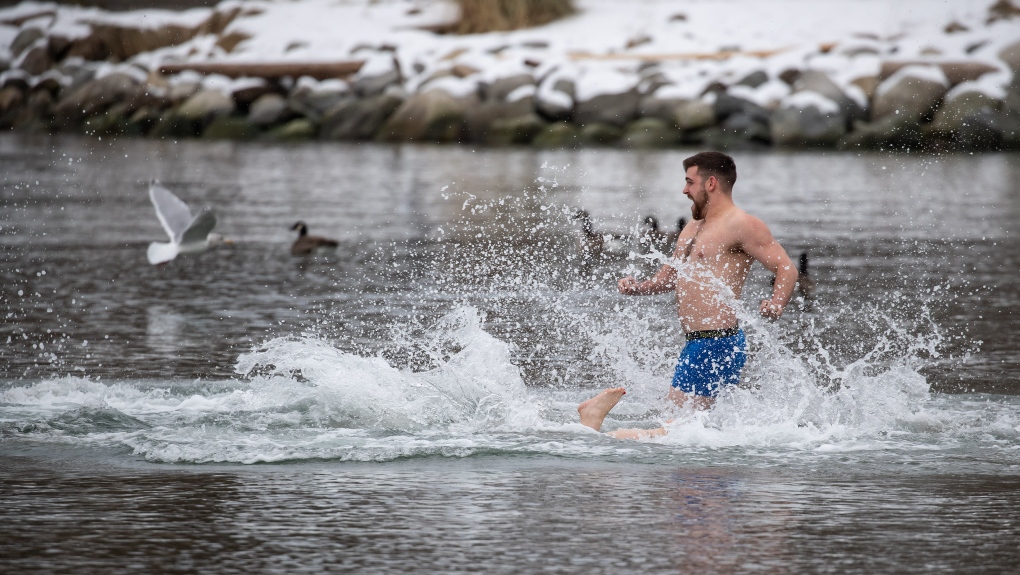
Every New Year's Day, thousands of brave souls gather at English Bay in Vancouver, Canada, for the annual Polar Bear Swim. This iconic event is a test of endurance, a celebration of community, and a symbol of hope and renewal.
At precisely noon on January 1st, the air horn blares, and the crowd surges into the icy waters of the Pacific Ocean. The temperature hovers around freezing, and the water is a frigid 3-4 degrees Celsius. The initial shock of the cold is intense, but the swimmers quickly adapt, exhilarated by the adrenaline rush.
For many participants, the Polar Bear Swim is a way to challenge themselves both physically and mentally. It's a testament to their resilience and determination. As one swimmer put it, "The cold is just a mental game. If you can get past that, you can do anything."
The Polar Bear Swim has been a Vancouver tradition for over 100 years. It began in 1920 as a small, informal gathering of swimmers. Over time, it evolved into a massive community event that attracts people from all walks of life.
For many participants, the swim represents a chance to cleanse the past year and start fresh. It's a way to wash away the old and embrace the new. As one swimmer said, "The Polar Bear Swim is a way to wash away the cobwebs of the old year and start the new year with a clear slate."
Beyond the physical and emotional benefits, the Polar Bear Swim is also believed to have therapeutic properties. Cold water immersion has been shown to reduce inflammation, boost the immune system, and improve circulation.
For some participants, the swim is a way to cope with grief or trauma. The cold water can be a metaphor for facing adversity and emerging stronger on the other side. As one swimmer shared, "The Polar Bear Swim is a way to confront my fears. It's a reminder that I can overcome anything if I just take the first step."
While the Polar Bear Swim is a popular event, not all medical experts endorse it. Some doctors warn that the sudden immersion in cold water can be dangerous for people with heart conditions or other health issues.
However, other experts argue that the benefits of the swim outweigh the risks. They point to research showing that cold water immersion can improve cardiovascular health and boost the immune system. Ultimately, the decision of whether or not to participate in the Polar Bear Swim is a personal one.
The Polar Bear Swim is a complex and multifaceted event that evokes a range of emotions and experiences. For some, it's a thrilling challenge, a way to cleanse the past year, or a therapeutic experience.
For others, it might be seen as a reckless stunt or a potential health hazard. Regardless of one's perspective, the Polar Bear Swim remains an iconic Vancouver tradition that unites the community and inspires a sense of hope and renewal.
As the sun sets on English Bay on New Year's Day, the swimmers emerge from the water, exhilarated and exhausted. They have faced their fears, celebrated their community, and washed away the old year. And as they return to their warm homes, they carry with them a sense of accomplishment and the promise of a new beginning.

Comments
Post a Comment